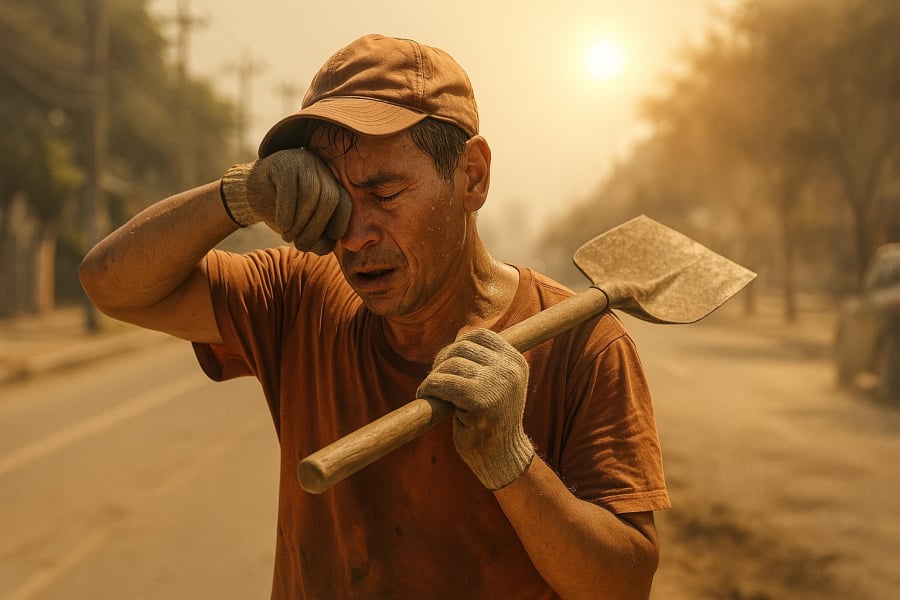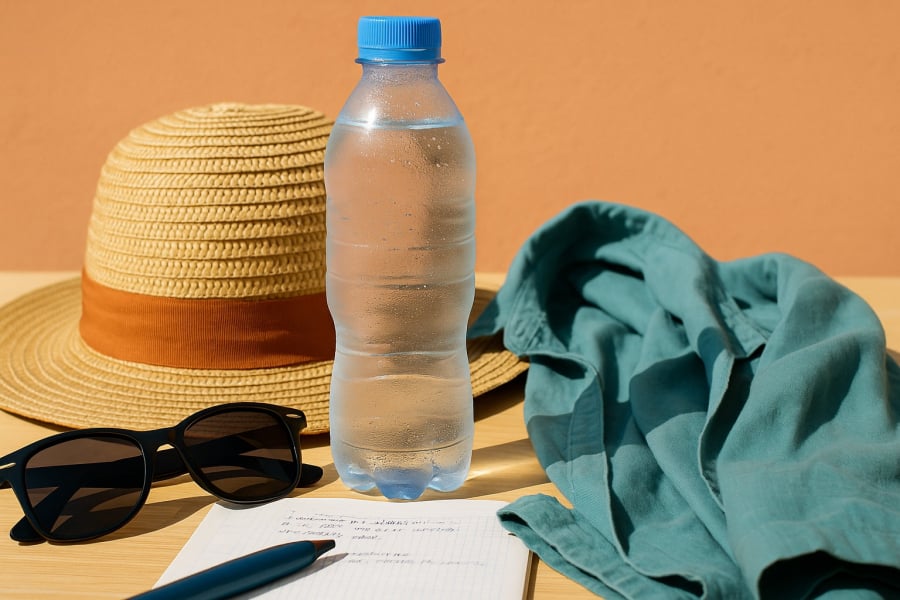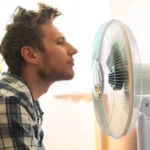The recent news of record-breaking heatwaves sweeping across Asian countries has raised concerns among many. Outdoor temperatures in some regions have soared to a staggering 50°C (122°F) – an alarming figure! In light of this, Dr. Palleti Siva Karthik Reddy, a medical expert at Koshys Hospital in India, has issued special warnings about protecting our health in such extreme weather conditions. Let’s delve into the details to arm ourselves with knowledge and safeguard our well-being and that of our loved ones.
The Human Body’s Threshold: Enduring 50°C Heat
According to Dr. Reddy, our bodies endure tremendous stress when exposed to temperatures reaching 50°C. Typically, our body temperature is maintained at around 37°C through natural mechanisms like sweating and vasodilation (widening of blood vessels) to dissipate heat. However, at such extreme temperatures, these mechanisms can become overwhelmed, leading to serious consequences.
“Initially, the body responds by increasing perspiration to cool down,” Dr. Reddy explains. “The blood vessels near the skin also dilate to release heat. But if this persists, prolonged vasodilation can lead to low blood pressure and reduced blood flow to vital organs, especially the brain.”
Research from the University of Roehampton in the UK reveals that the maximum temperature the human body can handle is between 40°C and 50°C. Exceeding this range can result in heat stress, causing dizziness, fatigue, cramps, and even loss of consciousness. More dangerously, if left untreated, heat stroke can occur, leading to potential brain, heart, and kidney damage and, in the worst cases, death.

The 3 Most Vulnerable Body Systems in Extreme Heat
As per Dr. Reddy’s analysis, prolonged exposure to high temperatures severely affects three critical body systems:
Kidneys
Excessive sweating leads to rapid dehydration, putting a strain on the kidneys. Vietnamese medical experts, as quoted in Vietnamnet, emphasize that continuous dehydration can impair kidney function, posing a particular danger to the elderly and those with pre-existing health conditions.
Heart
In high temperatures, the heart works twice as hard to pump blood through dilated blood vessels. This increases the risk of heart attacks and other cardiovascular events. According to The Lancet, cardiovascular events are the leading cause of death during heatwaves.
Brain
At elevated temperatures, proteins in the body may stop functioning properly, disrupting the nervous system. Common signs include seizures, altered mental status, and cognitive control issues. These are red flags indicating heat stroke and require immediate medical attention.
Safeguarding Your Health in Extreme Heat
To protect yourself and your loved ones from the scorching heat, Dr. Reddy offers practical advice. Here are some measures to implement immediately:
Stay Hydrated
Drink ample water daily and avoid caffeine and alcoholic beverages as they dehydrate the body faster. Research from Vietnam’s National Institute of Nutrition recommends that adults consume at least 2-2.5 liters of water per day, with an increase in hot weather.

Seek Shade
Limit outdoor activities during peak temperatures, especially between 11 am and 3 pm. If you must go out, opt for shaded areas or use an umbrella for protection.
Dress Appropriately
Lightweight, loose-fitting, and light-colored clothing reflect heat and aid in evaporation. Cotton or breathable fabrics are ideal.
Avoid Strenuous Activities
Manual laborers, such as farmers, construction workers, and delivery personnel, should take frequent rest breaks and stay hydrated. Employers, as highlighted by Tuoi Tre Online, are urged to provide adequate water and rest areas for their workers during heatwaves.
Cool Down
Use fans, take cool showers, or apply ice packs to the neck, wrists, and armpits, which have major veins to cool the body quickly.
Act Promptly
If you experience dizziness, nausea, or headaches, immediately move to a cooler area and hydrate. In case of heat stroke symptoms like delirium or fainting, call for emergency medical help.
In Conclusion
Record-breaking heatwaves are not just weather phenomena; they pose a direct threat to human health and life. Remember, the kidneys, heart, and brain are the three critical areas that need urgent protection during extreme weather. Taking proactive measures and following the above advice will help us safely navigate the summer season and maintain our health and well-being.
“Tips for Driving During the Summer Rush Hour”
The summer weather in Vietnam can be unforgiving with scorching heat and high temperatures taking a toll on both drivers and their vehicles. With the mercury rising, it becomes even more crucial to pay extra attention to car care and maintenance to ensure a safe and comfortable driving experience during this challenging season.



































